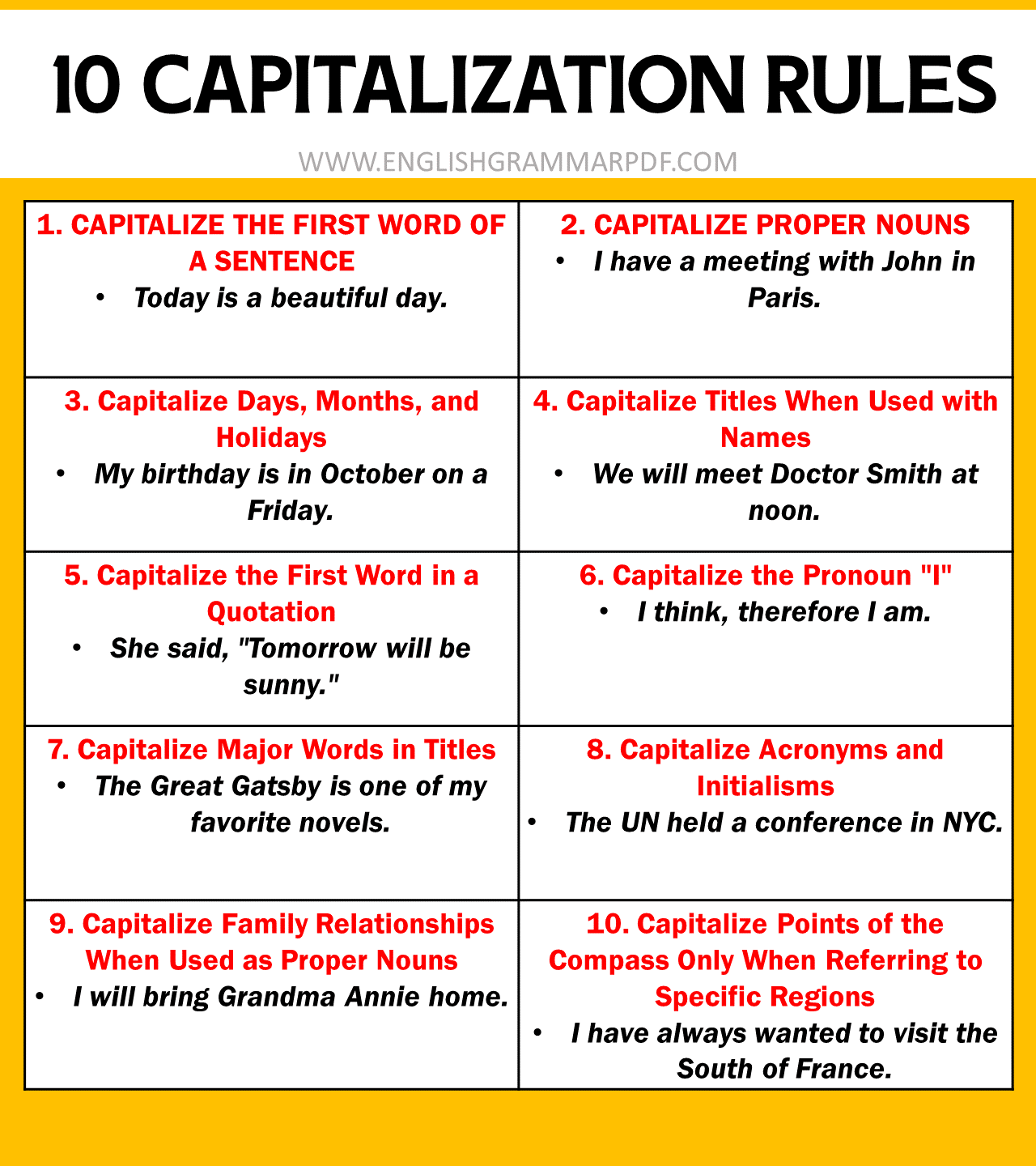Have you ever wondered why some words in a sentence start with big, tall letters while others don’t? It’s like giving certain words a special hat so they stand out! This is called capitalization, and it’s like a secret code in English writing.
Knowing when to use these “special hats” can make your writing look smart and polished. Let’s dive into the 10 key rules of capitalization that will help you crack this code and make your sentences shine.
Ready to become a capitalization detective? Let’s go!
Important Capitalization Rules

1. Capitalize the First Word of a Sentence
Rule: Always capitalize the first letter of the first word in a sentence, no matter what the word is.
Example: Today is a beautiful day.
2. Capitalize Proper Nouns
Rule: Proper nouns, which are the names of specific people, places, or things, should be capitalized.
Example: I have a meeting with John in Paris.
3. Capitalize Days, Months, and Holidays
Rule: The names of days, months, and holidays are capitalized, but not the seasons.
Example: My birthday is in October on a Friday.
4. Capitalize Titles When Used with Names
Rule: Titles should be capitalized when they are used immediately before names, but not when they are used separately.
Example: We will meet Doctor Smith at noon.
5. Capitalize the First Word in a Quotation
Rule: The first word in a direct quotation should be capitalized if the quotation is a complete sentence.
Example: She said, “Tomorrow will be sunny.”
6. Capitalize the Pronoun “I”
Rule: The pronoun “I” is always capitalized, no matter where it appears in a sentence.
Example: I think, therefore I am.
7. Capitalize Major Words in Titles
Rule: In titles of books, articles, movies, etc., capitalize the first word, the last word, and all major words in between.
Example: The Great Gatsby is one of my favorite novels.
8. Capitalize Acronyms and Initialisms
Rule: All letters in acronyms (e.g., NASA) and initialisms (e.g., FBI) should be capitalized.
Example: The UN held a conference in NYC.
9. Capitalize Family Relationships When Used as Proper Nouns
Rule: Family relationships should be capitalized when used as proper nouns before a name, but not when they are used generally.
Example: I will bring Grandma Annie home.
10. Capitalize Points of the Compass Only When Referring to Specific Regions
Rule: Points of the compass (north, south, east, west) should be capitalized only when they refer to specific regions or are part of a proper name.
Example: I have always wanted to visit the South of France.
